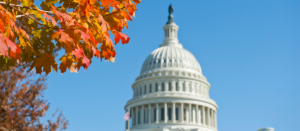By Jaelyn Morgan, Intern for the Department of International Affairs, Concerned Women for America
In the face of China’s gross violations against the Uyghur people and other minorities, the United States is speaking out. So is Concerned Women for America.
The U.S. State Department has accumulated mounting evidence on China’s systemic human rights violations against over one million Uyghur and other ethnic and religious minorities, particularly in the Xinjiang province. Violations include “forced disappearance, political indoctrination, torture, psychological and physical and psychological abuse, including forced sterilization and sexual abuse, forced labor, and prolonged detention without trial.” Most victims are Muslim. A significant number are Christian.
On June 17, 2020, U.S. President Donald Trump signed into law the Uyghur Human Rights Policy Act of 2020 to hold the individuals and entities responsible for the “gross violations of human rights” against the Uyghurs and other ethnic minorities in Xinjiang. On July 1, 2020, Concerned Women for America (CWA) released a statement in support of Secretary of State Mike Pompeo’s stance, stating, “A program of mass sterilization and forced abortion in ethnic and religious minority communities is particularly dehumanizing, and the global community cannot stay silent.”
China first denied, but has since acknowledged, the existence of “re-education” camps in Xinjiang which they claim are necessary for combatting “extremism” and “terrorism.” In 2013 and 2014, Chinese authorities labeled the Uyghurs as responsible for terrorist attacks in Tiananmen Square and Kunming, respectively. Currently, China severely restricts religious expression and interferes in the daily habits, education, weddings, funerals, and “family planning” of any person deemed a “religious extremist.” Women undergo forced sterilizations and abortions. Individuals “disappear.” Families are arrested for having “too many children.” Parents are coerced into confessing that their personal choices show they are “lawless” and “uncivilized.”
By 2017, reports of the issue became public knowledge. On July 8, 2019, 22 Western nations formally requested for the UN Human Rights Council (HRC) to address the matter. By the UN’s own guidelines, China’s actions to prevent births within the Uyghur group constitutes “genocide.” Ironically, China was on the HRC at that time and holds itself up as a leader in human rights while being a human rights violator. As Dr. Shea Garrison, CWA’s Vice President of International Affairs, stated in The Washington Times, “as in the case of China, confusion about fundamental rights offers cover to authoritarian and totalitarian governments that provide benefits to citizens as a demonstration of ‘human rights,’ all the while censoring the press, oppressing religious freedom or imprisoning political dissidents.” Indeed, only four days later, 37 countries sent a letter of refutation to the HRC, defending China’s actions in Xinjiang and praising them for “remarkable achievements in the field of human rights.”
Currently, more progress is being made toward holding China accountable for its unjust actions. Following the release of the U.S. Uyghur Human Rights Policy Act, 50 independent UN experts sent a letter urging the HRC “to act collectively and decisively to ensure China respects human rights and abides by its international obligations.” On June 29, 2020, the Interparliamentary Alliance in China (IPAC), composed of parliaments from 15 nations, sent a statement to the UN General Assembly, calling on them to swiftly investigate the matter and determine whether genocide is taking place.
The international community must uphold its own standards. What is taking place in China against certain minority groups is discriminatory, abusive, and wrong. Nations, including the U.S., must continue to put pressure on China and international human rights courts to bring accountability to those responsible for these horrific violations of human rights.






